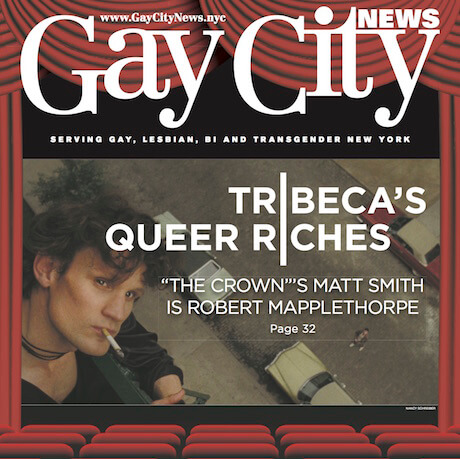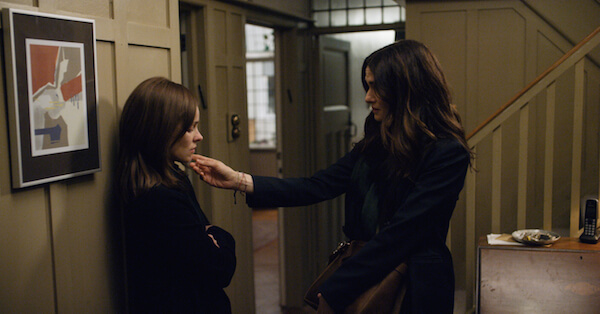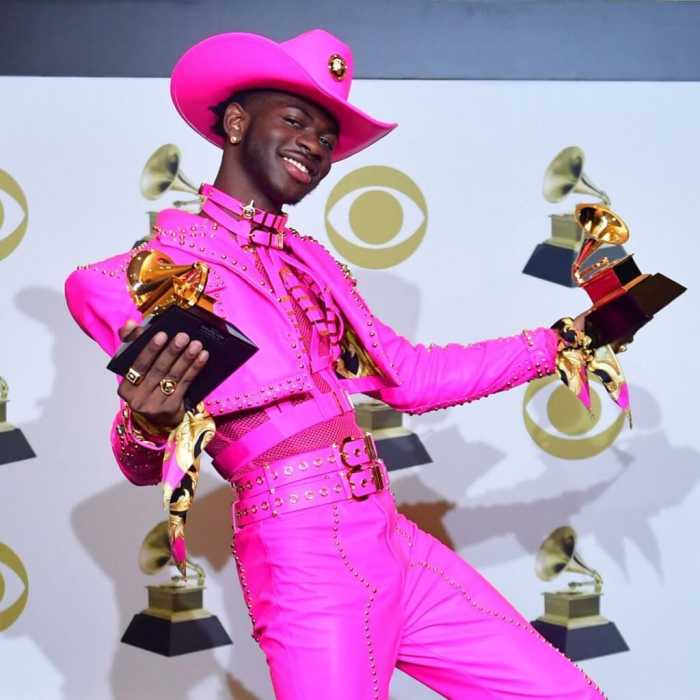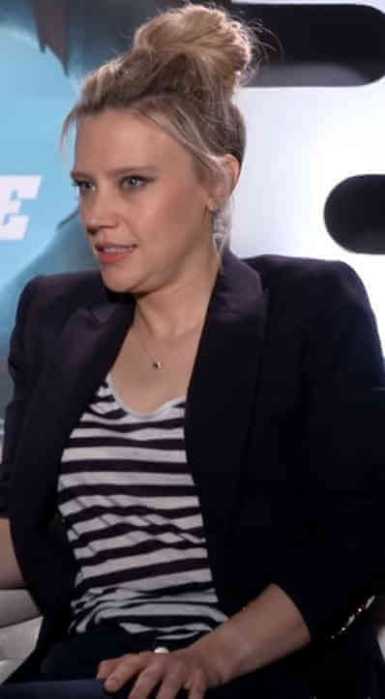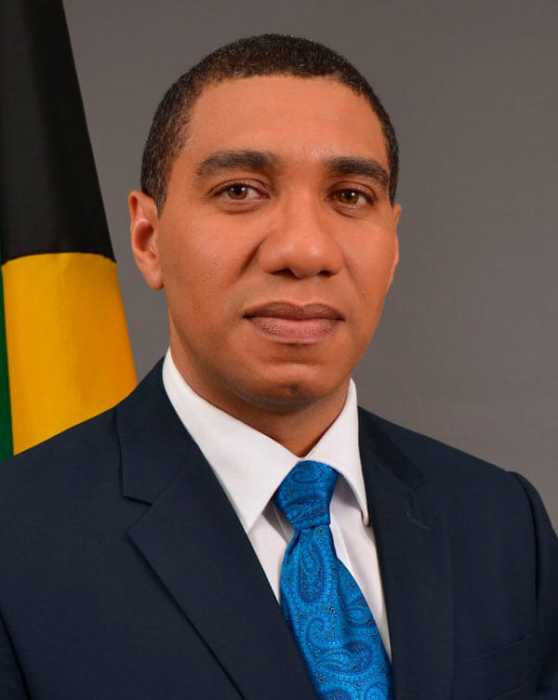PHOTO BY NANCY SCHREIBER/ DESIGN BY MARCOS RAMOS
The Tribeca Film Festival, unspooling at half a dozen Lower Manhattan venues April 18-29, features several LGBTQ films and filmmakers. While not every queer-focused title was available for preview, a handful of features, documentaries, shorts, and special programs were.
One of the highlights of this year’s fest is the world premiere of Jeff Kaufman’s “Every Act of Life” (Apr. 23, 8 p.m.; Apr. 24, 5 p.m.; Apr. 25, 6:15 p.m.; Apr. 26, 4 p.m.), a lovingly made documentary about the esteemed playwright Terrence McNally, tracing his life growing up in Corpus Christi in the 1950s through his extraordinary success in the theater. McNally candidly discusses his failed relationships with playwright Edward Albee, closeted in the 1950s when they were together, and actor Robert Drivas as well as his drinking — and how Angela Lansbury told him to stop. McNally also shares his thoughts about his intensely vulnerable characters and the themes of invisibility and connection that were the basis of plays of his such as “Frankie and Johnny in the Clair de Lune,” among others. “Every Act of Life” highlights many of McNally’s gay productions, including “The Ritz,” “Love! Valour! Compassion!,” and “Mothers and Sons.”
Terrence McNally, Robert Mapplethorpe, murdered trans Filipina among films on tap
Though the film skimps on detailing the controversy surrounding McNally’s 1998 “Corpus Christi” and generally rushes through his late career work, it features fabulous photographs, letters, and archival footage. There are also wonderful interviews with a who’s who of theater, including Nathan Lane, Audra McDonald, Tyne Daly, Billy Porter, John Glover, John Benjamin Hickey, and many more. Though it may seem a hagiography, “Every Act of Life” clearly demonstrates that McNally deserves the genuflection.
On the phone from Europe, where he is working on a play, out gay actor Hickey described McNally as “one of the biggest influences in my life as an artist. He is a writing and theatrical hero of mine. I’m so proud to be part of the film.”
Very young Terrence McNally and Edward Albee as seen in Jeff Kaufman’s “Every Act of Life.” | COURTESY OF TRIBECA FILM FESTIVAL
Hickey also appears on screen at Tribeca as Sam Wagstaff, benefactor, mentor, friend, and lover to the provocative gay artist Robert Mapplethorpe (Matt Smith) in Ondi Timoner’s eagerly awaited biopic, “Mapplethorpe” (Apr. 22, 9 p.m.; Apr. 23, 8:45 p.m.; Apr. 24, 6:30 p.m.; Apr. 27, 9:30 p.m.) — one of the titles unfortunately not available for preview. Loving the challenge of playing a real person, Hickey said he researched the role by reading Philip Gefter’s biography and seeing the documentary “Black White + Gray.”
“You get to go to school,” he said. “Research helped open doors for me to learn about the art world in 1970s New York. It was exploding. Sam’s collection presaged the idea of photography as fine art. I’m a huge fan of his taste. His eye was downright intimidating.”
Hickey acknowledged, however, that he didn’t identify closely with Wagstaff.
“I don’t feel we have that much in common other than being gay New Yorkers,” he explained. “He was such a huge influence and cultural force in the arts in the later part of 20th century. It was daunting because Sam was so incredibly handsome. He had extraordinary hair. I had Charles LaPointe make me a wig, which I loved wearing.”
As part of Tribeca TV, the festival is hosting the world premiere of Melissa Haizlip’s and Samuel Pollard’s “Mr. Soul” (Apr. 22, 8 p.m.; Apr. 23, 5:45 p.m.; Apr. 25, 9:15 p.m.; Apr. 26, 6:30 p.m.), a terrific documentary about the landmark late 1960s/ early ‘70s WNET TV series “Soul!,” which was made by, for, and about African Americans. The show’s producer and frequent host, Ellis Haizlip, was a gay man who provided both a showcase for and a celebration of African-American singers — Patti LaBelle, Stevie Wonder, and Al Green among them — as well as poet Nikki Giovanni and writer James Baldwin. Interviewing Louis Farrakhan on the program, Haizlip dared to ask the leader of the Nation of Islam about homosexuality on air. “Mr. Soul” is an astonishing collection of interviews and archival footage of a program that was both of its time and ahead of its time as one talking head suggests.
PJ Raval’s riveting documentary “Call Her Ganda” (Apr. 19, 6 p.m.; Apr. 20, 5 p.m.; Apr. 21, 5:30 p.m.; Apr. 24, 9:15 p.m.; Apr. 29, 8:30 p.m.) chronicles the 2014 death of Jennifer Laude, a transgender Filipina who was murdered by US marine Joseph Scott Pemberton. The film, which features gender-nonbinary journalist Meredith Talusan following the case, addresses issues of transphobia, US colonialism, and justice — including some interesting wrinkles — to show how Laude’s death exposed some painful truths about gender-based violence.
Forrest Goodluck, Sasha Lane, and Chloë Grace Moretz in Desiree Akhavan’s “The Miseducation of Cameron Post.” | COURTESY OF TRIBECA FILM FESTIVAL
“The Miseducation of Cameron Post” (Apr. 22, 8 p.m.; Apr. 23, 6:45 p.m.; Apr. 24, 9:30 p.m.; Apr. 26, 3:15 p.m.) is bisexual filmmaker Desiree Akhavan’s (“Appropriate Behavior”) bittersweet adaptation of Emily M. Danforth’s novel about forging one’s independence in the face of repression. Cameron (Chloë Grace Moretz) is a teenage lesbian who loves Coley (Quinn Shephard). When they are caught having sex, Cameron is sent to God’s Promise, a gay conversion therapy center. Of course, Cameron knows there is nothing wrong with her, and her same-sex desires — which she sometimes acts on — remain unabated. It is only through the friendship of fellow “disciples” Jane (Sasha Lane) and Adam (Forrest Goodluck) that she finds a way to maintain her authentic, true self. As Cameron measures herself against her teen peers, she learns that weakness — she experiences a series of hardships — can in the end provide strength. “The Miseducation of Cameron Post” is a somber drama, and Moretz gives a compelling performance as the film builds to a quietly powerful conclusion.
Another lesbian-themed film involving religious oppression at Tribeca is “Disobedience” (Apr. 24, 8 p.m.; Apr. 25, 7 p.m.), co-written and directed by Sebastian Lelio, who adapted Naomi Alderman’s novel. When her father, Rav Krushka (Anton Lesser) dies, Ronit (Rachel Weisz) returns to London and the Orthodox Jewish community she abandoned. When she reconnects with Esti (Rachel McAdams), the childhood friend she loved, the women rekindle their forbidden romance. Alas, despite some heat in the bedroom scenes, “Disobedience” is top-heavy with didactic speeches and obvious symbolism. The actresses do their best, but Weisz’s performance smacks of self-importance and McAdams is woefully miscast.
Rachel McAdams and Rachel Weisz in Sebastian Lelio’s Disobedience.” | COURTESY OF TRIBECA FILM FESTIVAL
As part of the Tribeca N.O.W. Showcase, which features independent online work, the comedy web series “Driver Ed” (Apr. 19, 8:30 p.m.; Apr. 21, 5 p.m.) has the title character (co-creator Jacob A. Ware) signing up for driving lessons because he is “living a lie.” He told his online girlfriend that he is a professional racecar driver — but he does not even have a license. When he meets Sweet Jody (Eddie Diaz), sparks fly as they put on their seat belts and Ed realizes he may be lying about more than just driving. This deadpan series offers three segments in its 10 minutes. Viewers will likely be curious to see where “Driver Ed” goes next.
The Tribeca Immersive entry “Queerskins: A Love Story” (daily, Apr. 20-28 at the Tribeca Festival Hub, fifth fl., Spring Studios, 50 Varick St., just below Canal St.) is a virtual reality experience that has viewers sit in the back of a vintage 1986 Cadillac Sedan DeVille driven through a Midwestern landscape by the parents of Sebastian, who died of AIDS. As objects along the route come into focus, so too does Sebastian’s life.
Illya Szilak — who co-created the interactive film with Cyril Tsiboulski, an out gay man — hopes viewers “create their conception of who Sebastian was through a box of objects.”
The creators chose the VR format because, Szilak said, they were “interested in exploring the dynamic of embodied, material, historical, political, and social realities, and the human desire to transcend that.” The interactive storyteller explained that the nearly two-dozen objects in the box include items such as 3-D models of vintage Tom of Finland drawings. Viewers get to see nine of those objects in a 15-minute short.
“The box changes and acts as a placeholder for Sebastian’s character,” Szilak explained. “The objects are randomized, so each viewer gets a different set, and their responses to them will differ based on the objects and the viewer’s own personal history. You come up with your own conception of Sebastian. If you are Catholic, you may have a relationship to a vintage statue of Mary with a broken nose. As the viewer, you put on a costume and enter someone’s reality. We recognize your own history, bias, and perceptions construct the story. It is the real playing against the virtual, the imaginative, and memory.”
“Queerskins: A Love Story” should provide a heady experience one can only have at the Tribeca Film Festival.
TRIBECA FILM FESTIVAL | Six venues downtown | Apr. 18-29 | tribecafilm.com


